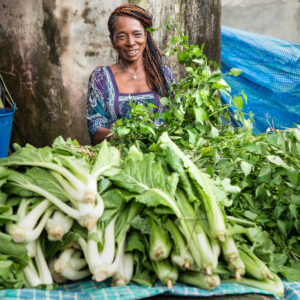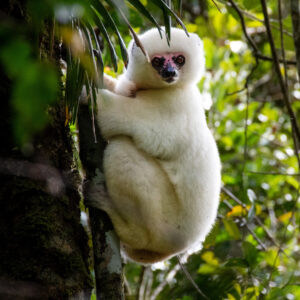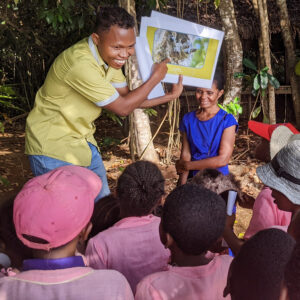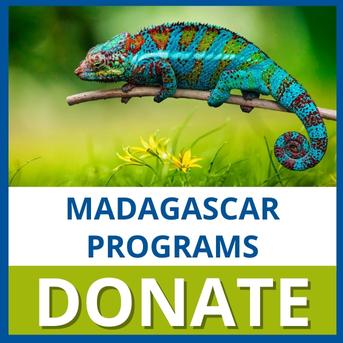Miaro atiala, mamboly fiainana
Protect the forest, and life will grow
The DLC-SAVA Conservation project is dedicated to preserving the natural biodiversity of Madagascar—especially its charismatic lemurs—by empowering local communities to be conservation leaders. Our goals are preserving natural environments as well as increasing sustainability and resilience. We achieve these goals through grass-roots projects, environmental education, and research. Our activities span multiple dimensions including landscape restoration, regenerative agriculture, reconnecting people with nature, and much more.
The DLC’s conservation projects in Madagascar are funded entirely through grants and donations, so your contributions turn our conservation dreams into realities. Please consider supporting us with a tax-deductible donation today!
Mission
The mission of DLC-SAVA Conservation is to conserve biodiversity in Madagascar by supporting the livelihoods of rural people in forest-bordering communities and through collaborations with researchers, local environmental organizations, and governmental institutions. We collaborate with Malagasy to promote environmental education, reforestation, sustainable agriculture, rainforest protection, family planning, and conservation-oriented lemur research.
Celebrating 10 Years in the SAVA
In 2021, the DLC celebrated the 10th anniversary of the DLC-SAVA conservation project! We’d especially like to recognize our steadily growing number of loyal project supporters, who have so generously enabled us to keep our conservation activities going. Without you, there would be no DLC-SAVA. Thank you!
Frequently asked questions
Why does Madagascar matter?
Madagascar is the fourth largest island in the world and features some of Earth’s most amazing and diverse life. Isolated for more than 80 million years, the plants and animals of Madagascar evolved their own unique characteristics, not found elsewhere on the planet. Almost all of the mammals, reptiles, and amphibians, and over 90% of the plant species (over 12,000), are found nowhere else on the planet.
Madagascar is the only place on Earth where lemurs are found in the wild. Sadly, within the last 60 years, forest cover has decreased by over 40%, and less than 15% of Madagascar is now covered in natural forest. At least 17 species of lemur have gone extinct, and 95% of remaining species are classified as Critically Endangered, Endangered, or Vulnerable—making lemurs the most endangered group of mammals on Earth.
To learn more about why Madagascar matters, please see LEMURS Magazine: The “Why” Issue, published by the DLC in 2024.
How does the DLC-SAVA Conservation project help?
For nearly 40 years, the Duke Lemur Center’s initiatives in Madagascar have been a long-term investment and require strong relationships with empowered local people. Thus, the DLC-SAVA Conservation project embraces a community-based approach to protect the environment. A multi-disciplinary array of diverse activities are designed to ultimately address environmental issues affecting conservation and sustainability while simultaneously improving the lives of the local people. All project activities focus on environmental education, research, partnership, and empowering local interest groups at all levels.
Can I travel with the DLC to Madagascar?
You can! We invite you to be part of the DLC’s annual Magical Madagascar EcoTour, an exclusive and remarkable adventure to one of the most extraordinary places on Earth.
How can I learn more?
Get in touch with the DLC-SAVA team! Email your question or inquiry to sava-conservation@duke.edu.
Flip through the DLC-SAVA annual newsletter to keep up-to-date with the latest news and information on the DLC-SAVA project.
Check out our video page to see our Madagascar team in action.
Read our blog series, where our team posts frequent updates about our work in Madagascar. More in-depth articles are featured in our annual magazines.
Follow us on social media, where #MadagascarMonday is a regular theme.
Sign up for the DLC’s bimonthly eNewsletter, which regularly highlights conservation-focused stories.
DLC-SAVA staff
Lanto Andrianandrasana
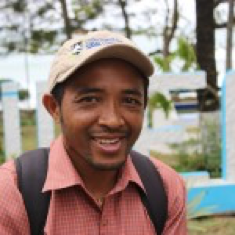
Lanto Andrianandrasana, DLC-SAVA Project Coordinator
Lanto is based in SAVA region of Madagascar. He has worked in the SAVA since 2009 and has been with DLC-SAVA since its inception in 2011. Lanto has been involved in research, with a master's degree in Paleontology, as well as lemur behavior and conservation. Lanto is responsible for project administration in SAVA and the coordination of our activities with local partners.
Contact: lha3@duke.edu.
Evrard Benasoavina
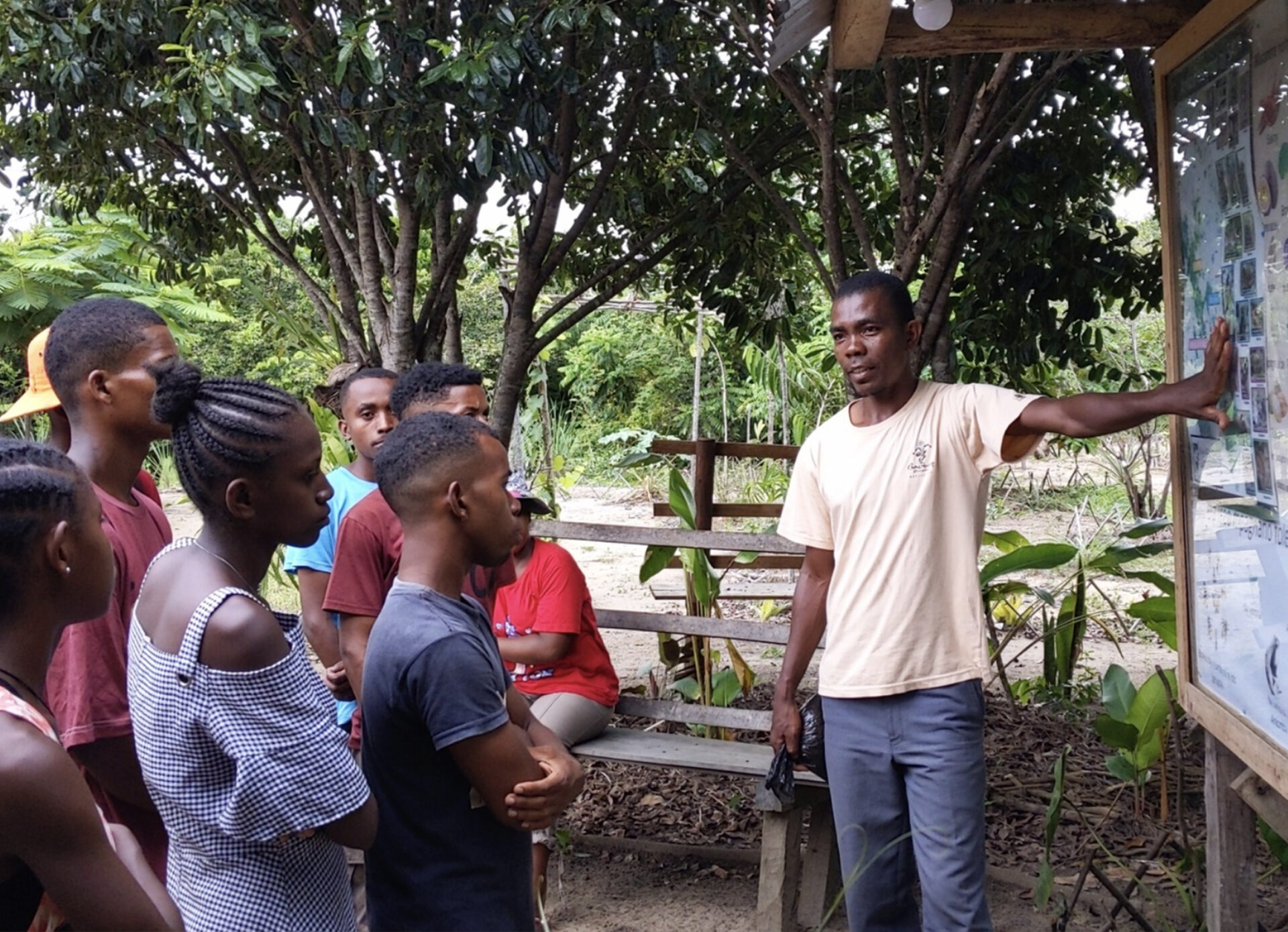
Evrard Benasoavina, DLC-SAVA Education Specialist
Evrard is a resident of the SAVA region, born in Antalaha and living in Sambava. He earned his degree focused on tourism at the Goethe University in the capital city, Antananarivo. Evrard has worked as an ecotourist guide, nature interpreter, and biology researcher. He founded the New Generation School Garden, an interpretive center located outside the city of Sambava that hosts educational visits for people of all ages. Over 2,000 students have reconnected with nature at the School Garden since 2020 with a value-added, sequential learning lesson plan. Evrard is now the Education Specialist with the DLC-SAVA Conservation program in Madagascar.
James Herrera, Ph.D.
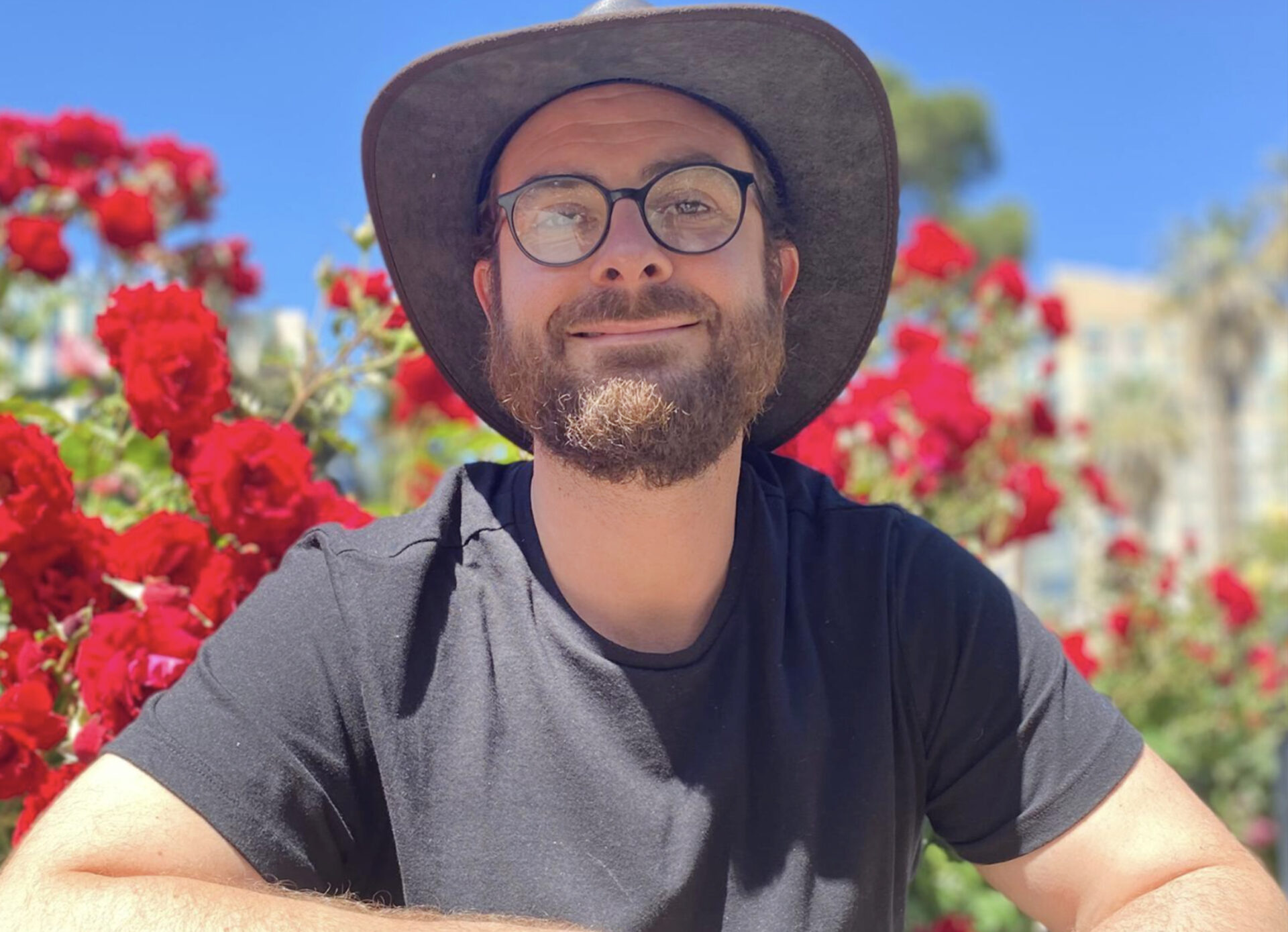
James Herrera, Ph.D., Director of Conservation
James is based in the SAVA region of Madagascar, with 15+ years of experience with conservation research and outreach in Madagascar. James conducted his Ph.D. at Stony Brook University, studying lemur evolution, ecology, and conservation. He was a research fellow at the American Museum of Natural History, and a researcher with Duke University’s Evolutionary Anthropology department. James leads the implementation and evaluation of all DLC project activities in the SAVA region of Madagascar.
Contact: james.herrera@duke.edu.
Read more about James at his personal website.
Marie Rolande Soazafy, Ph.D.
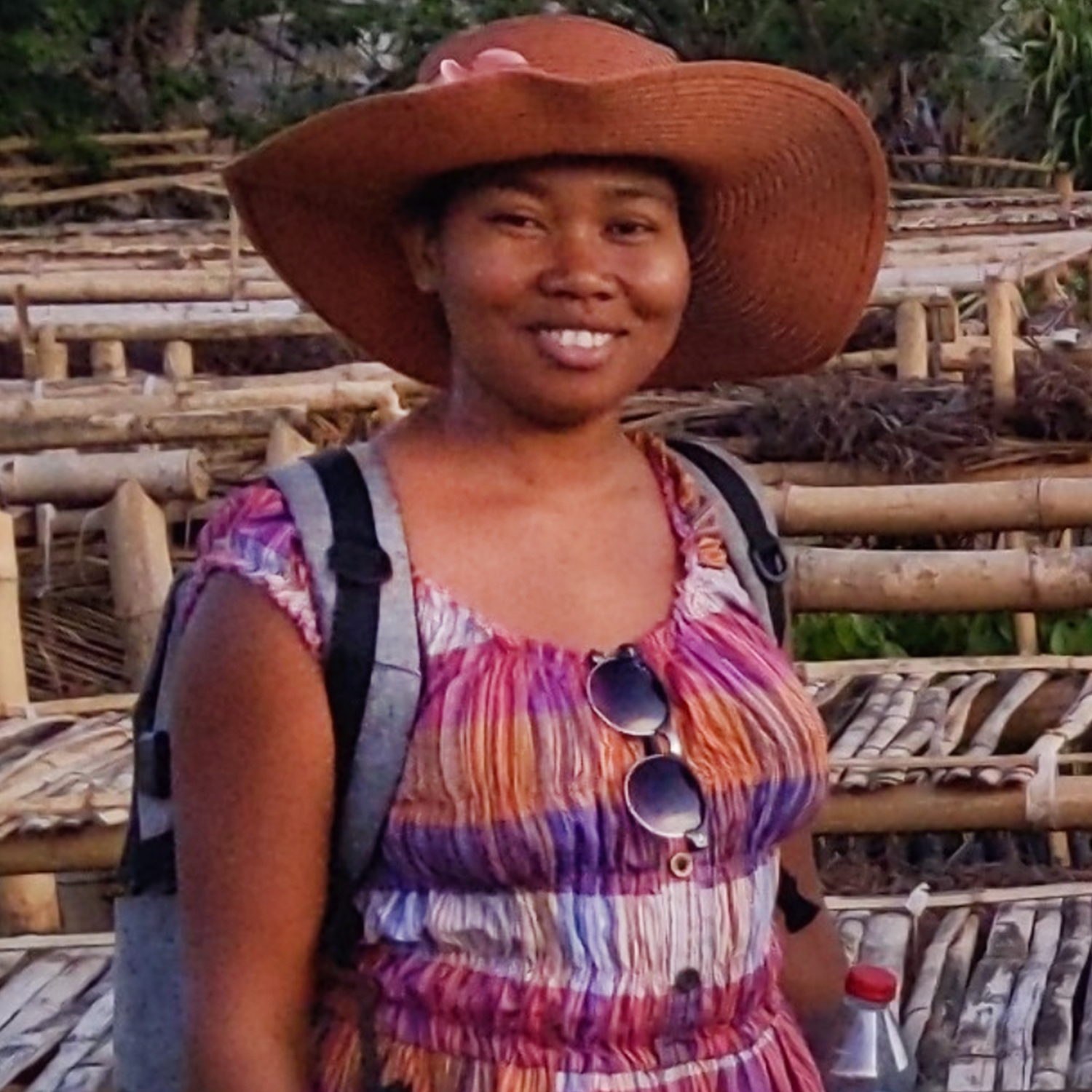
Marie Rolande Soazafy, Ph.D., DLC-SAVA Postdoctoral Research Fellow
Born and raised in the SAVA region, Rolande received her Ph.D. in Botany at the University of Mahajanga, researching how tree species diversity varies across the mosaic landscapes of the SAVA, including pristine forests and diverse agroecosystems. Her results highlight the value of diversified agroforestry for meeting local needs and preserving biodiversity.
Rolande is leading our restoration research program, and she mentors CURSA students in high-caliber research. Starting with DLC-SAVA Conservation in 2024, Rolande is already making a big impact on our research program.
Charlie Welch
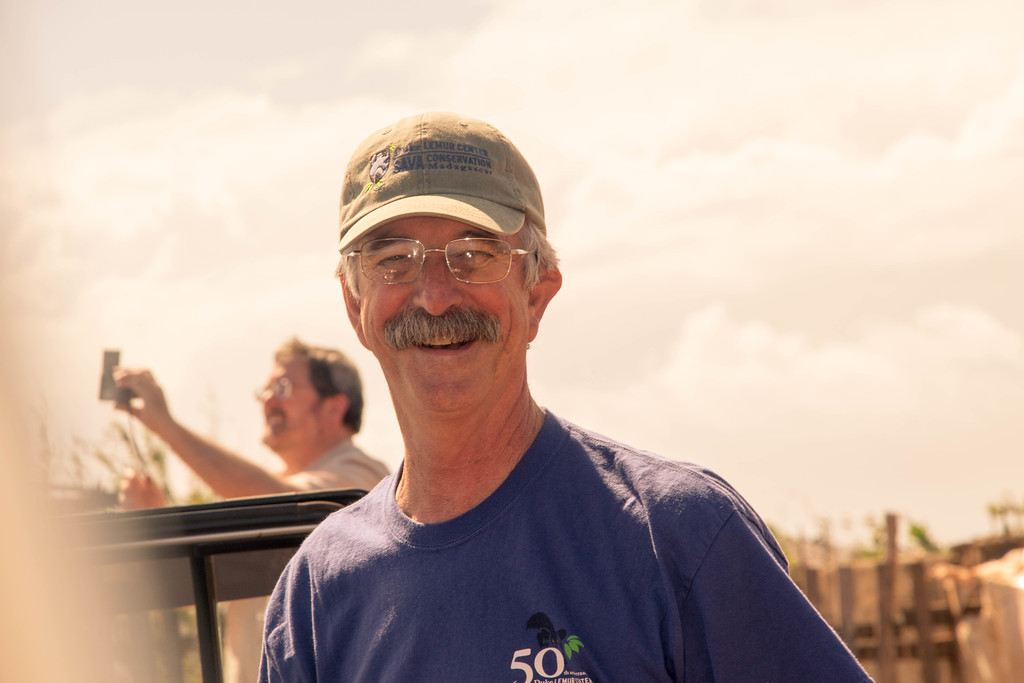
Charlie Welch, DLC Conservation Coordinator
Charlie is based at the Duke Lemur Center in Durham, NC and has more than 35 years of experience working in Madagascar conservation, including 15 years living in Madagascar. In 2004, Charlie was awarded the Chevalier de l’Ordre National by the government of Madagascar for conservation accomplishments in the Tamatave region, while with the Madagascar Fauna and Flora group. Charlie now coordinates all project activities, both at the DLC and in Madagascar.
Contact: charles.welch@duke.edu.

Lanto Andrianandrasana, DLC-SAVA Project Coordinator
Lanto is based in SAVA region of Madagascar. He has worked in the SAVA since 2009 and has been with DLC-SAVA since its inception in 2011. Lanto has been involved in research, with a master's degree in Paleontology, as well as lemur behavior and conservation. Lanto is responsible for project administration in SAVA and the coordination of our activities with local partners.
Contact: lha3@duke.edu.

Evrard Benasoavina, DLC-SAVA Education Specialist
Evrard is a resident of the SAVA region, born in Antalaha and living in Sambava. He earned his degree focused on tourism at the Goethe University in the capital city, Antananarivo. Evrard has worked as an ecotourist guide, nature interpreter, and biology researcher. He founded the New Generation School Garden, an interpretive center located outside the city of Sambava that hosts educational visits for people of all ages. Over 2,000 students have reconnected with nature at the School Garden since 2020 with a value-added, sequential learning lesson plan. Evrard is now the Education Specialist with the DLC-SAVA Conservation program in Madagascar.

James Herrera, Ph.D., Director of Conservation
James is based in the SAVA region of Madagascar, with 15+ years of experience with conservation research and outreach in Madagascar. James conducted his Ph.D. at Stony Brook University, studying lemur evolution, ecology, and conservation. He was a research fellow at the American Museum of Natural History, and a researcher with Duke University’s Evolutionary Anthropology department. James leads the implementation and evaluation of all DLC project activities in the SAVA region of Madagascar.
Contact: james.herrera@duke.edu.
Read more about James at his personal website.

Marie Rolande Soazafy, Ph.D., DLC-SAVA Postdoctoral Research Fellow
Born and raised in the SAVA region, Rolande received her Ph.D. in Botany at the University of Mahajanga, researching how tree species diversity varies across the mosaic landscapes of the SAVA, including pristine forests and diverse agroecosystems. Her results highlight the value of diversified agroforestry for meeting local needs and preserving biodiversity.
Rolande is leading our restoration research program, and she mentors CURSA students in high-caliber research. Starting with DLC-SAVA Conservation in 2024, Rolande is already making a big impact on our research program.

Charlie Welch, DLC Conservation Coordinator
Charlie is based at the Duke Lemur Center in Durham, NC and has more than 35 years of experience working in Madagascar conservation, including 15 years living in Madagascar. In 2004, Charlie was awarded the Chevalier de l’Ordre National by the government of Madagascar for conservation accomplishments in the Tamatave region, while with the Madagascar Fauna and Flora group. Charlie now coordinates all project activities, both at the DLC and in Madagascar.
Contact: charles.welch@duke.edu.
Support Our Work
100% of funds for the DLC’s conservation projects come from donors and grants. Please consider making a contribution today to support SAVA conservation. Thank you!

